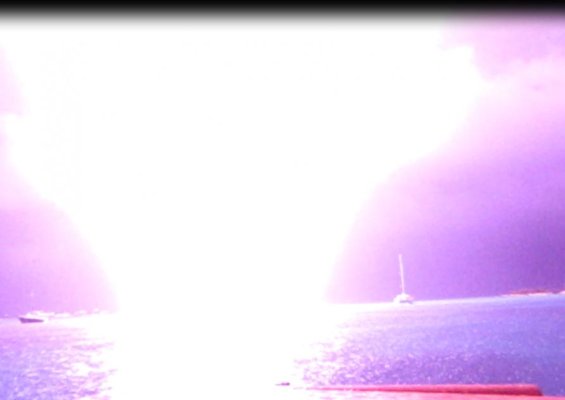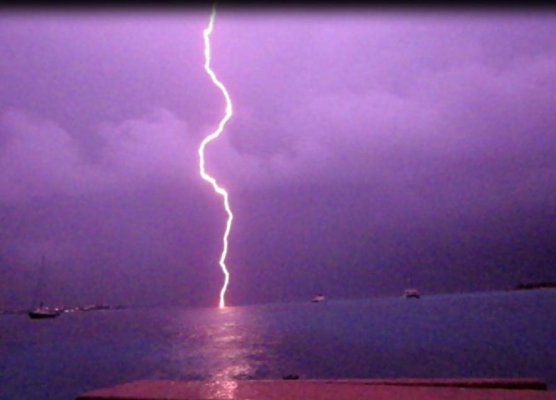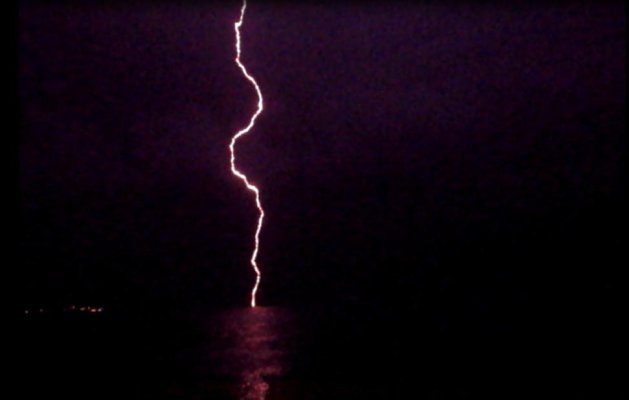Now, you've done it! I thought I was safe here. Now, I'm paranoid again.

The night before last we had an all night lightning and thunder storm the light show was nearly comparable all to the 4 th july events for the last 99 years.
We had one hit but not where you would normally expect.
Here is a list of potential targets.
4 Police 100 ft steel radio towers
4 commercial radio station steel towers
2 Power station 80 ft exhaust chimneys
1 waste disposal incinerator chimney up 120 ft
1 Cast steel 245 ft Lighthouse. big target
A big bunch of city steel buildings , 2 all glass and steel.
A big bunch of cell phone towers
The Governors mansion with two towers
The house of Parliament house with two towers
1. 40 ft steel to ham radio grounded steel tower 280 ft above sea level , had two recent hits >>>>> its mine.
Miles of Airport and Prison chain link fences
6 super large steel fuel storage tanks.
You may say that lightning does not strike twice, don't you believe that one
our 245 ft Lighthouse takes lots of hits ,but not this time.
Where did it hit ?
The lightning took out a utility pole transformer located next to a steel water way swing bridge.
Why did the bridge not take the hit ?
Step right up Ladies, pay your money and take your pick.
Question : If lightning takes the path of least resist then why is fork lightning jagged and random.

 The idea of shielding the electronics is sound but we haven't used the oven as a shield since.
The idea of shielding the electronics is sound but we haven't used the oven as a shield since.











